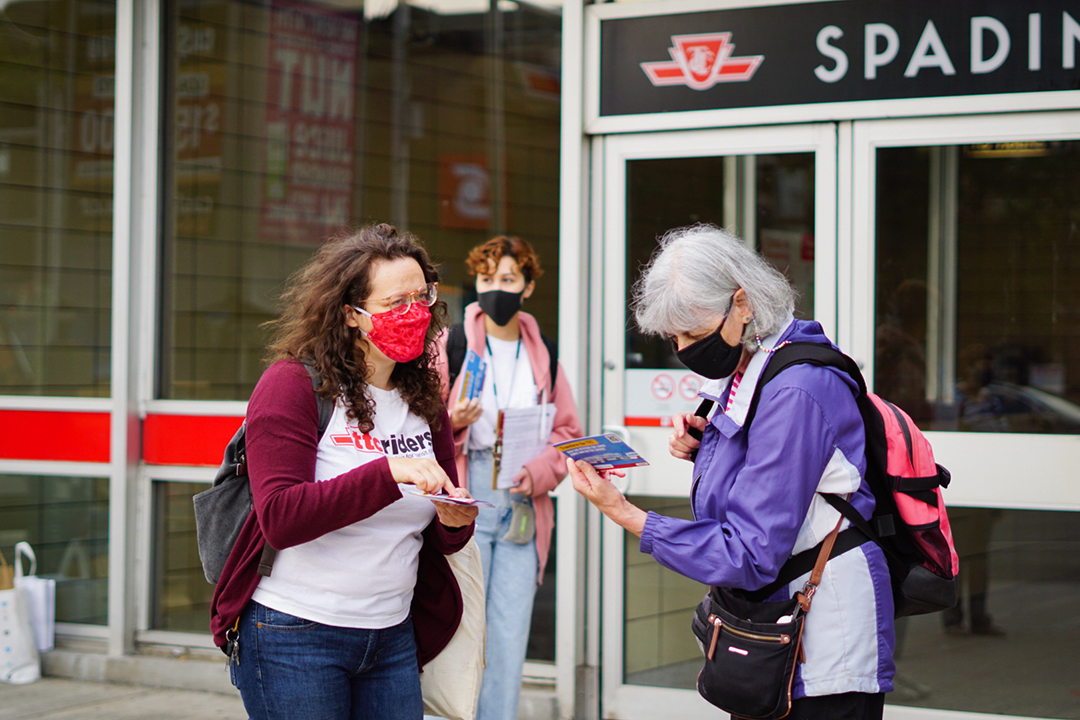On September 14, 2021, volunteers from a coalition of advocacy groups distributed flyers at 13 TTC stations across Toronto to alert the community that the TTC urgently requires federal funding. They expressed concerns that, due to a TTC deficit of $126 million and nearly exhausted emergency transit funding, Toronto’s transit system might have service cuts and increased fares in the future.
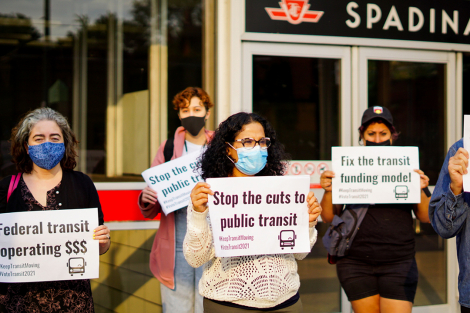
Sujata Thapa, who studies transportation planning at U of T, told The Varsity that she believes public transportation is a climate solution and a human right. JADINE NGAN/THE VARSITY
TTCriders spokesperson Sujata Thapa was among those distributing flyers at Spadina Station that morning. Thapa is a PhD candidate at the Department of Geography and Planning.
One of her areas of study is transportation planning, and she pointed out that the TTC is already the least subsidized transit system in North America. “In order to operate smoothly, you need permanent funding,” Thapa told The Varsity.
She also studies women’s mobility, and noted that if TTC service cuts force transit users to wait longer for buses, this would create safety concerns for women. Additionally, Thapa noted that since women bear the brunt of unpaid reproductive work, they often travel between multiple destinations — childcare, elder care, the grocery store. As a result, reduced services would create significant problems for them.
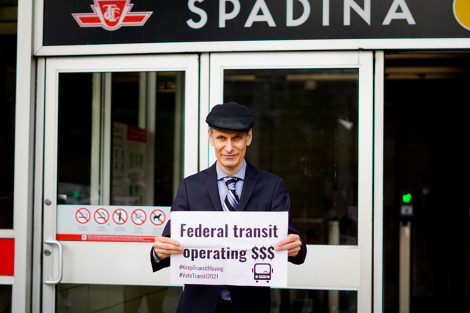
Gideon Forman of the David Suzuki Foundation sees public transit as a climate change issue. JADINE NGAN/THE VARSITY
“I work with the David Suzuki foundation,” volunteer Gideon Forman told The Varsity. “We’re very concerned, obviously, about the climate crisis. The biggest contributor to the climate crisis in Ontario is transportation, mostly cars and trucks.”
“So we have to get people out of their private gas burning cars — and transit is one of the best solutions, right?”
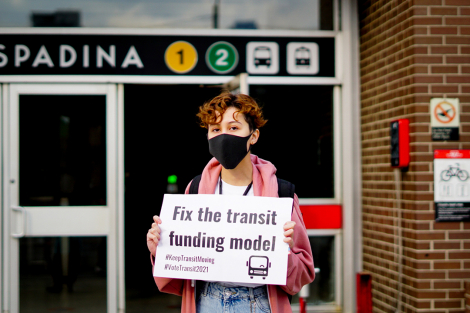
U of T student Axiom Edmonds recently moved to Toronto, and they rely on the TTC to get to campus. JADINE NGAN/THE VARSITY
U of T Masters of Social Work student Axiom Edmonds was among the volunteers at Spadina Station. “The TTC is basically the only way I can get around,” Edmonds said, noting that their commute to campus takes 30 to 40 minutes.
They told The Varsity that they’re new to Toronto, and while the TTC is “not the worst it could be… it could be better” — for example, buses could run more frequently and sanitation could improve.
“With less people taking transit now than ever, because more people are working from home, you kind of need funding for these transit stations,” Edmonds said. “Otherwise, they’re going to go under.”
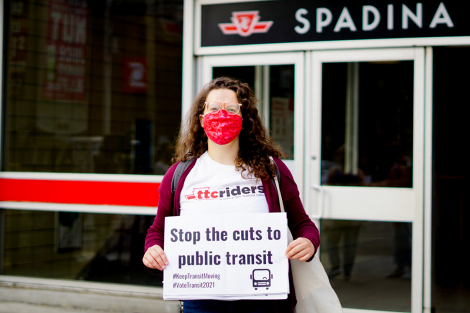
When Shelagh Pizey-Allen first arrived in Toronto from Winnipeg, she quickly realized that Toronto is divided — not every area has rapid transit. JADINE NGAN/THE VARSITY
In an interview with The Varsity, TTCriders’ Executive Director Shelagh Pizey-Allen said that TTCriders “spoke to hundreds of transit users” in early 2021.
Overwhelmingly, people expressed that crowded, unreliable services and high fare costs were their largest barriers to taking transit. Some transit users have given up food to afford transportation; other users have felt constrained in their ability to pursue educational or work opportunities “because they can’t get around the city.”
“The whole transit funding model has relied for too long on our fares, and right now that’s not sustainable. We need a whole new approach,” Pizey-Allen told The Varsity. “We need bold changes to win back riders, and that starts with federal operating funding.”

